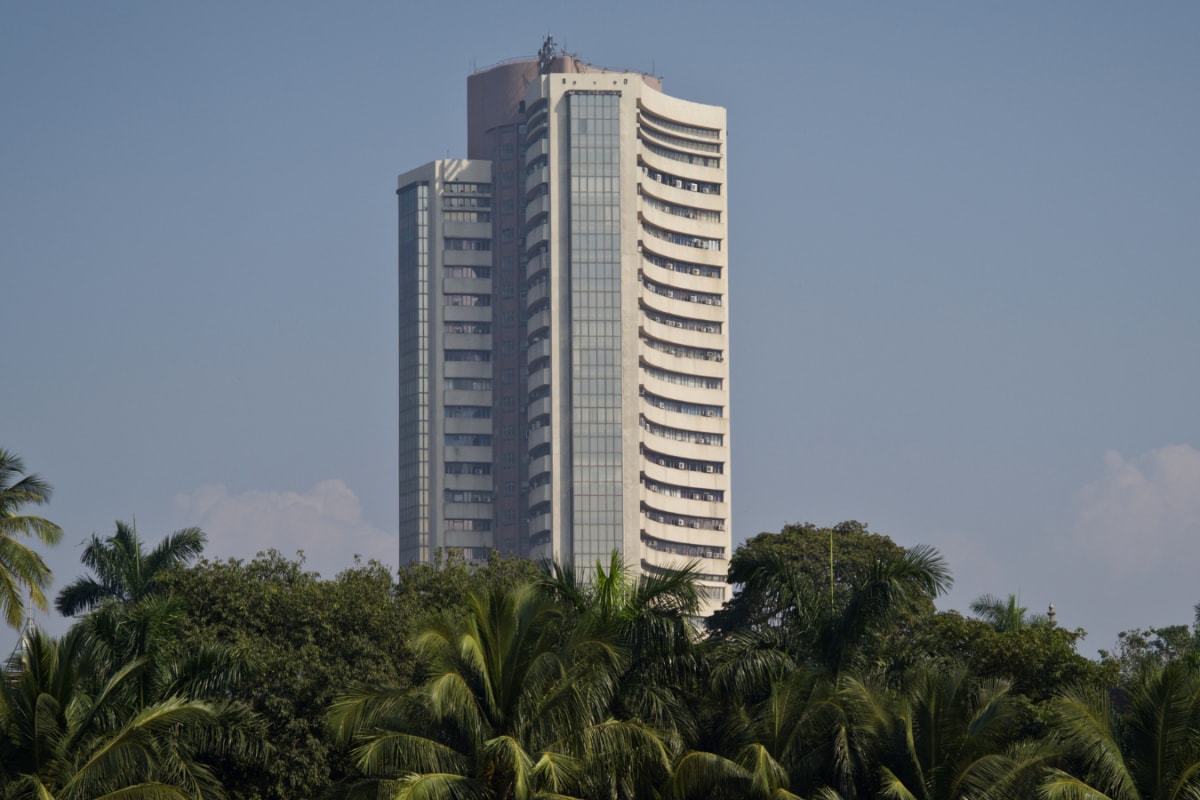

The Indian stock market witnessed a volatile trading session today, with the Sensex initially dipping by 200 points before staging a recovery. However, it once again succumbed to selling pressure, ultimately closing in the red. The Nifty also mirrored this trend, hovering below the 24,800 mark.
At the start of the trading day, the BSE Sensex index opened on a weak note, falling over 200 points, reflecting concerns over geopolitical tensions and rising crude oil prices. However, the index soon found some support and managed to erase its early losses, jumping 200 points and trading in the green for a brief period. This recovery was attributed to buying interest in select sectors, including IT and auto.
Despite the mid-day recovery, the Sensex failed to sustain the momentum and once again slipped into negative territory. The 30-share index closed at 81,583.30, down by 212.85 points or 0.26%. Similarly, the NSE Nifty ended the day at 24,853.40, shedding 93.10 points or 0.37%.
Among the Sensex constituents, there were mixed performances. IndusInd Bank was among the top gainers, rising by over 2%. Other notable gainers included Maruti Suzuki, M&M, HCL Tech, Titan, Tech Mahindra, TCS, and Asian Paints. On the other hand, Sun Pharma, Eternal, Tata Motors, Bajaj Finance, and Bajaj Finserv were among the major laggards, contributing to the overall decline of the index.
The broader market also reflected the weakness in the benchmark indices. The BSE Midcap index and the BSE Smallcap index also ended lower, indicating a widespread selling pressure.
Several factors contributed to the market's volatility and eventual decline. Escalating geopolitical tensions between Israel and Iran continued to weigh on investor sentiment. The rise in global crude oil prices, fueled by these tensions, further dampened the mood, raising concerns about inflation and its impact on the Indian economy.
Furthermore, investors remained cautious ahead of the US Federal Reserve's policy meeting, scheduled later this week. The market is keenly awaiting the Fed's decision on interest rates and its outlook on the US economy, which could have implications for global financial markets.
The Indian rupee also weakened against the US dollar, falling 8 paise to 86.42 in early trade. The rise in crude oil prices and a strengthening dollar put pressure on the rupee. On June 17, the rupee closed at 86.23 against the greenback.
Despite the day's losses, some analysts believe that the Indian stock market remains fundamentally strong, supported by a growing economy and rising corporate earnings. However, they advise investors to remain cautious in the near term, given the prevailing global uncertainties.
Specifically on IndusInd Bank, while it was a top gainer today, it's worth noting that the company had recently posted a record quarterly loss. In May 2025, the share price of IndusInd Bank initially crashed nearly 6% following the announcement of a significant loss for the March quarter. This loss was attributed to a rise in bad loans and the impact of past accounting mistakes. However, the stock subsequently rebounded, trading over 2% higher, showcasing some resilience.